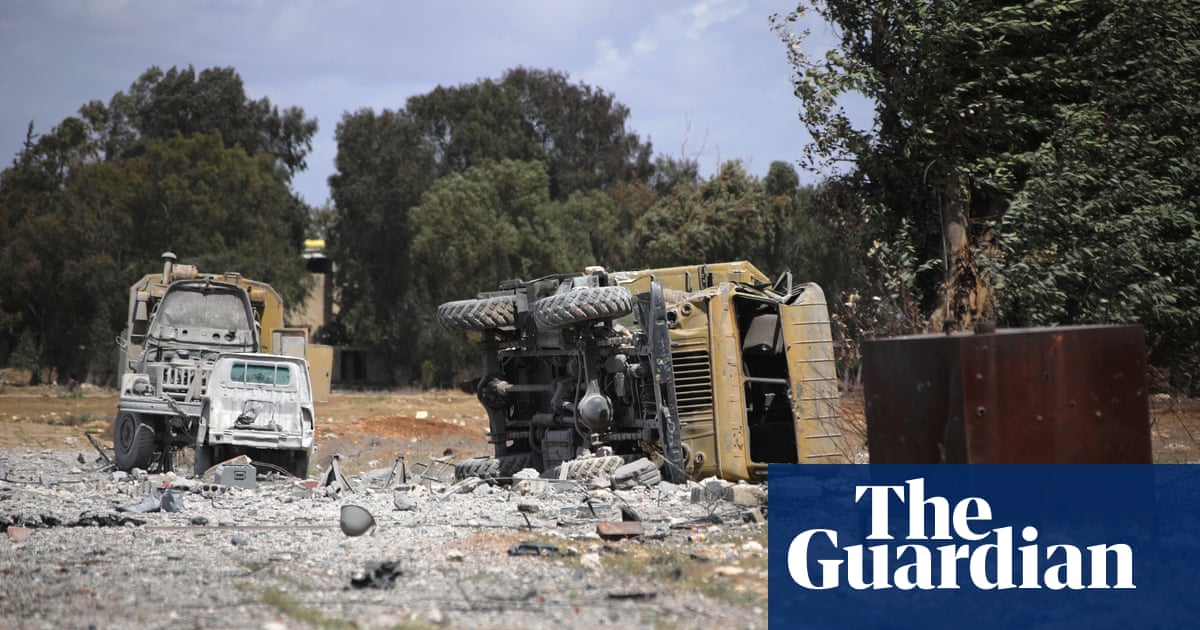As the dust settles in Syria,a new power dynamic is emerging,pitting Turkey adn Israel against each other – but also opening doors for unexpected cooperation. this article dives deep into the shifting sands of Syria,analyzing the future trends in Turkish-Israeli relations amidst post-conflict reconstruction and vying geopolitical interests. Discover the potential scenarios, economic implications, and the crucial role of external actors shaping the future of Turkish-Israeli relations in the region.
The Shifting Sands of Syria: Future Trends in Turkish-Israeli Relations
Table of Contents
The geopolitical landscape of syria is undergoing a notable change, with Turkey and Israel vying for influence in the post-Assad era. Recent diplomatic talks and military posturing suggest a complex interplay of cooperation and competition. Understanding the potential future trends in this dynamic relationship is crucial for anyone following Middle Eastern affairs.
the Core Issues: Interests and Concerns
At the heart of the matter are conflicting interests. turkey, under president Erdoğan, seeks too secure its borders, counter Kurdish influence, and potentially establish a sphere of influence in northern Syria. Israel, on the other hand, is primarily concerned with preventing the entrenchment of Iranian-backed forces and maintaining its strategic advantage.
These divergent goals have led to a series of actions and reactions.Turkey has been supporting the new Syrian government, while Israel has been conducting airstrikes against targets it deems a threat. This has created a tense habitat, prompting both sides to seek ways to avoid direct conflict.
Did you know? Israel has conducted hundreds of strikes in Syria as the former president’s departure, targeting military assets and infrastructure.
The Role of External Actors
The involvement of external actors further complicates the situation. Russia, a key ally of the new Syrian government, is a major player. The United States, while having a reduced presence, still exerts influence. The positions of these external actors will considerably impact the trajectory of Turkish-Israeli relations in Syria.
The recent diplomatic forum in Antalya, attended by both Turkish and syrian officials, highlights the evolving alliances and the importance of regional diplomacy.
Potential Future Scenarios
Several scenarios could unfold in the coming years:
- De-escalation and Dialog: Continued talks and the establishment of deconfliction mechanisms,as suggested by Turkish Foreign Minister Hakan Fidan,could lead to a period of reduced tensions. This would involve setting clear “red lines” and interaction channels to prevent misunderstandings.
- proxy Conflict: Despite the talks, the underlying tensions could lead to a proxy conflict, with Turkey and Israel supporting opposing factions within Syria. This could escalate the violence and further destabilize the region.
- Shifting Alliances: The dynamics could shift as new alliances emerge. Such as,a closer alignment between Turkey and the new Syrian government could further isolate Israel,or vice versa.
Pro Tip: Keep an eye on the actions of external actors like Russia and the United States, as their stances will significantly influence the situation.
Economic and Strategic Implications
The situation in Syria has significant economic and strategic implications. The control of key territories, resources, and trade routes is at stake. The outcome of the Turkish-Israeli rivalry will shape the future of the region and influence the balance of power.
The expansion of Israeli influence in the Golan Heights and the potential for Turkish military presence in syria are examples of the strategic stakes involved.
FAQ: Key Questions Answered
Q: why are Turkey and Israel in conflict in Syria?
A: They have conflicting interests, including border security, countering rival groups, and preventing the entrenchment of opposing forces.
Q: What are deconfliction mechanisms?
A: They are communication channels and protocols designed to prevent misunderstandings and accidental clashes between military forces.
Q: What role do external actors play?
A: Countries like Russia and the United States have significant influence and can impact the dynamics between Turkey and israel.
Conclusion
The future of Turkish-Israeli relations in Syria is uncertain, but the ongoing dialogue and military posturing suggest a complex and evolving situation. Understanding the key issues, the role of external actors, and the potential scenarios is crucial for anyone seeking to understand the dynamics of the Middle East.
What are your thoughts on the future of Syria? Share your opinions in the comments below!

